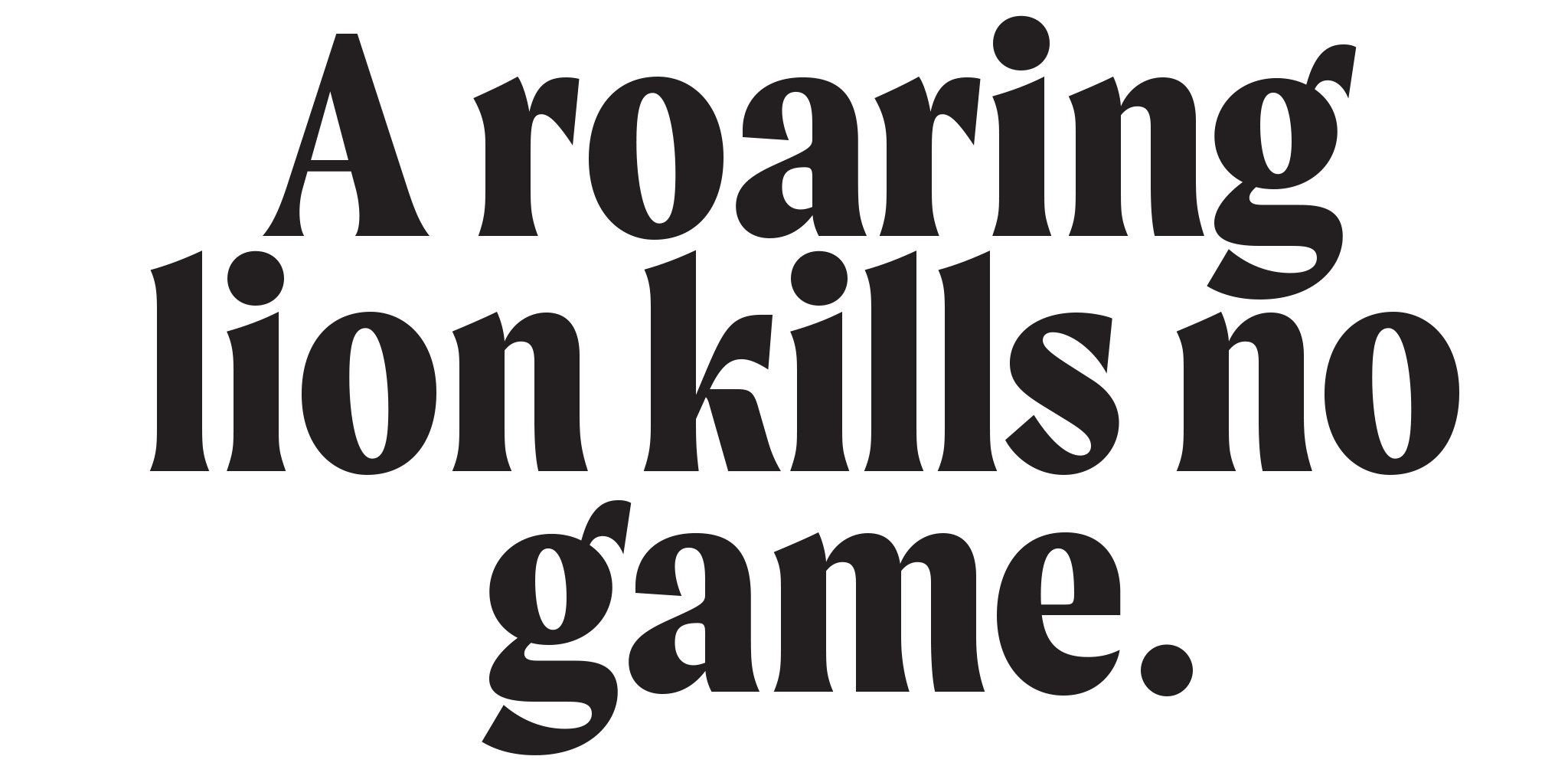

written by Ruby Oluoch
Imagination is the gift and ability that marginalized leaders have to offer. It is also what we must protect most fiercely.

On July 13, 2023, I submitted notice of my resignation as Pollen’s executive director. Pollen’s board of directors accepted the resignation and offered me two weeks pay on the condition that my resignation be effective immediately. I was notified that my access to email and IT systems had been immediately revoked.
Needless to say, the abrupt departure came as a shock to many after the colorful welcome of my appointment just months prior, and the extensive storytelling campaign detailing Pollen’s intentional leadership transition process that ran for the year leading up to my start date. Without the opportunity to formally communicate my resignation to Pollen’s partners, clients, and audience at large, I made a post on LinkedIn to announce that I had left my position.
In the post, I described my disappointment with the misalignment between Pollen’s proclaimed power-shifting ethos, its espoused values of care, transparency, racial justice, and the experience I had while leading as executive director. I also shared the questions that surfaced for me after learning from other nonprofit executives about their troubling experiences in leadership.

Today, I write with the intention to offer a unique form of closure rarely seen amongst the alarming trend of failed leadership transitions. Transitioning organizations, their boards, and their leaders are often put in impossible situations rife with urgent, competing priorities and limited time, resources, or support to navigate them thoughtfully. These are my reflections on what is required to lead with imagination and conviction against the odds, along with a reading list that has helped me arrive at this perspective.
“Today, I write with the intention to offer a unique form of closure rarely seen amongst the alarming trend of failed leadership transitions.”
I write to reclaim the last word of my story with Pollen, and to put forth a new story rooted in my deep belief in imagination and its power building potential. It is also my opportunity to express gratitude for the three wonderful years I worked at Pollen before starting and ending my time with the organization as executive director. My time at Pollen shaped me profoundly with lessons and relationships that I will forever hold dear.

After sharing my resignation post, I was flooded with messages from people offering their sympathies, sorrows, surprise, and their own personal stories of workplace dysfunction and fraught leadership experiences. The stories — likely intended to make me feel less alone in my heartbreaking disappointment — compounded my horror towards a disturbing reality in nonprofit leadership.
Before I made my own decision to resign, I sought guidance on the challenges I was facing from my executive director peers and more experienced nonprofits leaders. The problems were so commonplace, I found that many people could finish my sentences as I explained the issues. Operating with scant resources and limited time while facing constant resistance, a lack of trust and little faith were norms of the job. My experience was not only common, but also normalized, even as this reality proved costly for many leaders’ health and well being. So many of us encountered a profound lack of institutional imagination for what it could look for us to thrive in leadership. As a result, our struggle and eventual departures have been made to appear inevitable.
In a recent report published by the Robert Sterling Clark Foundation sharing insights of BIPOC leaders navigating leadership transitions, one participant said this:
“My experience has been so tremendously difficult that I would not in good faith recommend it for the health of a BIPOC woman.”

These words struck a painful chord with me. How did we get to the point where the cost of leadership is one’s health and wellbeing? And why are BIPOC women – Black women, in particular – paying a disproportionately higher toll? What’s at stake for the future of our work and our movements if Black women must leave to save their health (or their lives)?
Recently, as I wrestled with these questions, I came across a clip of Dario Calmese, founder of the Institute of Black Imagination, recounting a conversation held at Harvard with architect, scholar and Black feminist Mabel O. Wilson on how Black women navigate climbing the corporate world while invisible. “By the time you’ve gotten there,” Wilson said, “you’ve suffered so many nicks and scrapes that you’ve lost surface tension…it’s the little micro cuts that cut away at you until you just bleed out.”

 This wisdom led me to a startling truth: leading as a Black woman requires brutal acts of self preservation. Research shows that underrepresented leaders face inequities that feel insurmountable. Given the recent rollbacks of affirmative action, historically designed to increase access and opportunity for everyone, I suspect the conditions for underrepresented leadership across every sector and industry will get worse before they get better. Alongside mounting coordinated attacks on traditional media, early childhood education, DEI initiatives, and academia, we’re up against significant social regression that will affect those of us working for progressive social change for decades to come. History shows us that attacks on institutions of learning, unlearning, cultural production, and meaning making (and attacks on the people who lead them) forebode a frightening future.
This wisdom led me to a startling truth: leading as a Black woman requires brutal acts of self preservation. Research shows that underrepresented leaders face inequities that feel insurmountable. Given the recent rollbacks of affirmative action, historically designed to increase access and opportunity for everyone, I suspect the conditions for underrepresented leadership across every sector and industry will get worse before they get better. Alongside mounting coordinated attacks on traditional media, early childhood education, DEI initiatives, and academia, we’re up against significant social regression that will affect those of us working for progressive social change for decades to come. History shows us that attacks on institutions of learning, unlearning, cultural production, and meaning making (and attacks on the people who lead them) forebode a frightening future.
While awareness of this reality is growing, I worry it has not translated into our efforts to guide first-time leaders. As our concerns grow, they should shape concerted efforts to prepare, empower, and protect these leaders in ways that preserve their integrity and well-being.

My saving grace in the challenging start to my leadership journey was a supportive network of experienced mentors, coaches, and concerned loved ones that helped me assess my situation and make the right call in a moment of crisis. While I am grateful to have had these lifelines, it is only the bare minimum of what is required for durable leadership that will help us meet the challenges of our time.
As I try to identify solutions to this urgent issue, I turn my attention toward the narratives – the stories, ideas, and belief systems that we spread at scale and over time – that perpetuate a pattern of extinguished leadership. The stories we tell about what it means to lead – especially what it means to lead as a young person, a Black woman, or a person with other intersecting, underrepresented identities. We must interrogate these narratives in order for us to reinforce both personal and collective power in these positions.
Due to the insufficient support available for constant challenges we face, we often speak about being the first, being the only, and being the few, from a position of great struggle and deprivation. I am concerned that this orientation forces us to push ourselves to the brink in order to make an inch of progress. It conditions us to expect and accept mistreatment. We make negotiations with our health or integrity in order to satisfy the demands of harmful systems.
A lethal consequence is that these narratives kill the vibrant imaginations our identity in the margins uniquely affords us. In her essay, “marginality as site of resistance,” bell hooks describes the serious risk of this positioning:
“If we only view the margin as a sign, marking the condition of our pain and deprivation, then a certain hopelessness and despair, a deep nihilism penetrates in a destructive way the very ground of our being. It is there in that space of collective despair that one’s creativity, one’s imagination is at risk, there that one’s mind is fully colonized, there that the freedom one longs for is lost.”
Emerging and underrepresented leaders must be able to protect their radical imaginations in order to maintain their wellbeing and affect meaningful social change. Our marginality is not what makes our work impossible – it is actually what makes us indispensable, valuable and absolutely necessary. In the leadership profile Pollen published about me last year, I named imagination as one of my core values. I now believe that it is the value that we must protect most fiercely in order to thrive in sustainable and impactful leadership.
The radical imagination and resistance that we develop as a result of surviving at the edge can be a source of strength and sustenance when we choose to speak and act as if we are our own liberators. In order to retain our visions, to protect our imaginations, and keep our surface tension, we have to hold tightly to that space of refusal. At times, it will call for us to make difficult decisions about whether or not we can remain in our positions of leadership, or whether we have to consider alternative methods of seeing out this vital work.
A roaring lion kills no game: I hope that sharing my story lends to an effort towards changing the narrative and trajectory of underrepresented leadership. My hope is that we can collectively imagine a better way, then build power behind it.
“In order to retain our visions, to protect our imaginations, and keep our surface tension, we have to hold tightly to that space of refusal.”

A proverb that encourages the idea that substance and action are more meaningful than empty posturing. It is often used to advise against relying solely on grandiose gestures without the necessary planning, skill, or execution to achieve one’s goals.

I would like to take my very last words to share my gratitude towards the many people who made my experience at Pollen a truly formative one.
To the staff I worked with at Pollen, I have said this ad nauseam: You all were my greatest inspiration to lead. Your creativity, trust, faith, love, and tenacity helped me define my purpose. I genuinely believe that in my time at Pollen, I worked with the most brilliant minds and caring hearts in this region. Every day, you taught me with grace and generosity. Thank you from the bottom of my heart.
To Pollen’s partners, clients, audience, and community: Thank you for letting Pollen care for your stories. The work each of you do in your personal and professional lives to change our collective story for the better is what will drive us towards a free, just, and loving future. I’m honored to have met you in this shared work.
To Pollen’s artists, freelancers, and creative community: You are the lifeblood of Pollen’s beating heart. Your writing, images, talents, and crafts are what make Pollen stories remarkable and important. Your art shows us another world is possible. As Carrie Mae Weems once said, “art has a great deal to do with imagining the unimaginable.” Thank you for using your gifts to liberate our souls.
To my family, friends, coaches, mentors, and every person who invested in my leadership: Your support fills me with immeasurable pride and joy. Thank you for seeing me through every point of growth on my leadership journey.
Finally, to Melanie Walby, who is now leading Pollen: You are the human embodiment of divine grace. Your capacity for kindness is beyond my comprehension. Thank you for your patience and understanding when, after you first asked, I told you there was no way in hell I would ever write for Pollen again. Thank you for insisting that I and others receive a departure from Pollen befitting of our contributions. I may have caught the baton, but you have carried the torch that will light the future of this work. I wish you nothing but the best in your endeavors.


Suggested Reading List
marginality as site of resistance by bell hooks -An exaltation for the liberated imagination. This essay is exact in naming the dangers and risks marginalized people face when assimilating into cultures of colonized domination to survive life and work. It is also the most loving reminder that we can own our position in the margin, and do so from a place of nourishing resistance. Read More.
Brilliant Transformation: Toward Full Flourishing in BIPOC Leadership Transitions– If there is one read I wish I had before my transition, it is this one. Published just weeks after I resigned, this report provides a sweeping assessment of the challenges and opportunities in BIPOC leadership transitions. It both validated my experience while reassuring me that change is possible and that leaders of color have the strength, experience, and brilliance to see it through. Read More.
The Forge: Building Resilient Organizations by Maurice Mitchell– This article meets us at a boiling point of dysfunction and toxicity in progressive movement spaces. It includes important strategies at both the individual and organizational level to encourage movement building that “exude[s] joy, build[s] power, and secure[s] critical victories for the masses of working people.” I appreciate the measured approach with which Mitchell suggests strategies for both personal and organizational accountability as a pathway to resilience. Read More.
Nonprofit Quarterly: The State of Black Women Leadership is in Danger by Cyndi Suarez– This article reviews the latest research published by Washington Area Women’s Foundation on building an infrastructure to support thriving leadership for Black women. It details the report’s core themes and recommendations for change. I highlighted, underlined, circled and bolded the sections on the pervasive and fundamental absence of trust Black women experience in leadership. Read More.
Stanford Social Innovation Review: Investing in Black Women Leaders with the Dream Capital They Need by Gabrielle Wyatt– A message I can shout from the rooftops: invest in Black women with time and money. Wyatt makes the case for investments in Black women’s leadership that will result in long-term and visionary change that benefits us all. Read More.
Black Collective Foundation MN: Toward Power-Shifting Solidarity With Black-Led Change– This report asks Minnesota philanthropy to imagine “how much greater philanthropy can be” and to “confront the discomfort and thrill of the new world we want to bring in, and explore how we embody it from wherever we live, love, and lead.” The Collective urges us to move beyond lip service with bold belief in the brilliance of Black leadership. Read More.

contributors


